- Home
- Kelley Armstrong
Every Step She Takes
Every Step She Takes Read online
Praise for Kelley Armstrong
“Armstrong is a talented and evocative writer who knows well how to balance the elements of good, suspenseful fiction, and her stories evoke poignancy, action, humor and suspense.”
The Globe and Mail
* * *
“[A] master of crime thrillers.”
Kirkus
* * *
“Kelley Armstrong is one of the purest storytellers Canada has produced in a long while.”
National Post
* * *
“Kelley Armstrong is one of my favorite writers.”
Karin Slaughter
* * *
“Armstrong is a talented and original writer whose inventiveness and sense of the bizarre is arresting.”
London Free Press
* * *
“Armstrong’s name is synonymous with great storytelling.”
Suspense Magazine
* * *
“Like Stephen King, who manages an under-the-covers, flashlight-in-face kind of storytelling without sounding ridiculous, Armstrong not only writes interesting page-turners, she has also achieved that unlikely goal, what all writers strive for: a genre of her own.”
The Walrus
Also by Kelley Armstrong
Rockton series
City of the Lost
A Darkness Absolute
This Fallen Prey
Watcher in the Woods
Alone in the Wild
* * *
Standalone Novels
Wherever She Goes
The Masked Truth
Aftermath
Missing
* * *
Completed Series (fantasy)
Otherworld
Darkest Powers
Darkness Rising
Age of Legends
* * *
Completed Series (mystery)
Nadia Stafford
Cainsville
Every Step She Takes
Kelley Armstrong
This is a work of fiction. Names, characters, businesses, places, events and incidents are either the products of the author’s imagination or used in a fictitious manner. Any resemblance to actual persons, living or dead, events, or locales is purely coincidental.
No part of this book may be reproduced in any form or by any electronic or mechanical means, including information storage and retrieval systems, without written permission of the Author, except by a reviewer who may quote brief passages in a review.
Copyright © 2020 by K.L.A. Fricke Inc.
All rights reserved.
* * *
Cover Image: SergeyChayko/iStockphoto
ISBN-13 (print): 978-1-989046-27-2
ISBN-13 (e-book): 978-1-989046-26-5
Contents
Chapter 1
Chapter 2
Chapter 3
Chapter 4
Chapter 5
Chapter 6
Chapter 7
Chapter 8
Chapter 9
Chapter 10
Chapter 11
Chapter 12
Chapter 13
Chapter 14
Chapter 15
Chapter 16
Chapter 17
Chapter 18
Chapter 19
Chapter 20
Chapter 21
Chapter 22
Chapter 23
Chapter 24
Chapter 25
Chapter 26
Chapter 27
Chapter 28
Chapter 29
Chapter 30
Chapter 31
Chapter 32
Chapter 33
Chapter 34
Chapter 35
Chapter 36
Chapter 37
Chapter 38
Chapter 39
Wherever She Goes excerpt
Chapter 1
Chapter 2
Chapter 3
Chapter 4
About the Author
Chapter One
Rome 2019
Two frat boys jostle my shoulder as they tumble from the market shop. Their gazes brush over me. One realizes I’m ten years past his best-before date and pushes by without an apology. The other lets his gaze linger, considering.
“Buongiorno,” he says, mangling it into something suspiciously close to “Bon Jovi.”
“Hey,” I say in English. “Watch where you’re going, okay? These shops are really tiny.”
My American accent dashes the poor boy’s hope of a fling with a hot-blooded Italian, and he mumbles something unintelligible as he ducks past me.
An old man sitting at the counter glowers at the departing students.
“Buongiorno, Alessandro,” I say.
He lifts his afternoon espresso in greeting and then compliments my sundress as his rheumy eyes linger on my bare calves before he mutters, “The tourists have come to Trastevere.”
From behind the counter, Davide says, “The tourists have always been in Trastevere.”
“They have always been over there.” Alessandro gestures west. “This is not their side of the road.”
“So, I should move?” I say.
“You do not count, Genevieve. You live here. You speak passable Italian. And you are a pretty girl, which they are not.”
I laugh and accept the espresso Davide offers. Then I gather a few groceries as I chat with the old men. Davide rings me through, and I walk less than a hundred feet along the narrow cobblestone street to my apartment.
Alessandro isn’t wrong about the tourists. They used to keep to the other side of Viale di Trastevere, but in the last few years, they’ve ventured farther afield. So have the restauranteurs, and as I approach my building, a young woman in a white shirt and black bow tie steps out to lure me into a new place. At the last second, she recognizes me and withdraws with a nod. The trattoria has been there six months, and my neighbors grumble that the hostess still calls to them every time they pass. It’s one of the times I’m thankful for my memorable red hair.
I push on the heavy wood door to my building. It opens silently, and I step out of the hot June sun into the cool dark of the foyer. I glance at the glass front on my letter box. Empty as usual. Local friends text or e-mail, and most of my old ones have no idea where to find me. There was a time when that thought brought a wave of grief, but it’s hard to mourn your past when your present includes a historic Roman apartment with a gorgeous terrace and a schedule that lets you spend the afternoon lounging on it. This isn’t the life I envisioned, but I have fallen for it, like finding true love on the rebound.
Groceries in hand, I climb five flights of tilted, curving steps. There’s no elevator. The building is five hundred years old. If you can’t climb the stairs, you don’t rent the place.
The stairs narrow as they ascend, and by the time I reach the top, they’re so uneven that I slow lest I go tumbling down. I may have done that once or twice when I foolishly wore stiletto heels to a dinner that included a shared carafe of cheap house wine. Luckily, the first landing is only six steps down. Yes, I’ve counted.
With my grocery bag wedged between my shins and the door, I push the key into the lock and . . .
The door opens.
My heart stutters as the grocery tote drops to my feet. The key is only half-inserted, and the door is already cracked open. My muscles tense to run, but I roll my shoulders and take a deep breath.
Maybe I just forgot to lock it. At this time of year, I often leave the kitchen window and terrace door open. Everyone does in a country where the temperatures hit ninety by June and in-home air conditioning is uncommon. Whatever crime problems Rome might have, break-ins are rare, particularly in this area.
Then I
remember that I definitely locked my door today. I’d dropped the garbage bag while locking it. With a four-hundred-square-foot apartment, you do not leave overflowing garbage until the weekly pickup. I’d taken a bag to stuff into the restaurant’s bins. While locking the door, I’d fumbled the bag, and a wine bottle rolled out, tumbling over the edge—naturally—and shattering five floors below. Always a fun way to start the day. I was so annoyed that I heaved on the door, making damned sure it was locked after all that. It was. And now it is not.
I swallow hard and press my fingertips against the door. It creaks open farther. As I listen, my fingers fist against the wood, and I give a ragged chuckle at that. I’m a concert violist, not a barroom pugilist.
I take a deep breath, but my heart won’t stop racing. My apartment door is open when I know I locked it. I should scramble down the stairs as fast as I can, phone at my ear as I summon the police. Yet my feet don’t move. Calling the police means also calling attention to myself. I’ve spent ten years keeping the lowest possible profile, even here, thousands of miles from home.
I try to calm myself with the reminder that if it’s a burglar, he’d better hope he plays the viola. That’s the only thing of value in my apartment. I don’t own a TV, or a stereo or expensive jewelry, and my phone and my laptop are in my bag, slung over my shoulder.
My viola is valuable, though, and I do play it in public—I’m in a small symphony orchestra and a classical quartet. If someone saw my viola and realized it was worth much more than any personal tech, that could be a reason for breaking in.
The other possibility is the one that must rise for every woman who lives alone. I’ve always felt safer in Rome than I ever did in New York, but that doesn’t mean I am safe.
What truly sets my heart racing is the fear of a very different sort of intruder. As I stare at the open door, I hurl back into another life, one where I came home more than once to find my apartment broken into. It’d been ransacked twice, and once the intruder took nothing and left only ugly words lipsticked on my mirror. It’s the words I remember, though. It’s the words that have me swallowing hard, my hand shaking on the doorknob.
That can’t be what this is. Too much time has passed, and I’m the only person who still cares what happened to me. Yet it takes only this unlocked door to slam me back to that life.
And that is why I decide not to call the police no matter how big a mistake that could be. I’ve clawed my way from under the shadow of my past, and I will not fall back into that pit of paranoia and grief.
I still unlock my phone, ready to call 113 at the slightest sign of trouble. Then I push the door open enough to peer inside.
The tiny kitchenette and living area are empty. There’s no place to hide. Even the closet under the stairs is filled with storage shelves.
My gaze snags on a table. On it rests a cardboard box that I definitely didn’t leave there. With an apartment this small, it must be kept spotless.
There is a shoebox-sized parcel on my table, wrapped in mailing-paper brown.
Bomb.
Even as I think that, my brain scoffs. A bomb? Really? I’m not a politician, not a person who has been in the news beyond the entertainment pages, and that was fourteen years ago. No one is going to send me a bomb.
Still, I inch toward the table, ears trained for any noise from upstairs. It’s definitely a parcel. A courier package with all the appropriate labels and stamps for an overseas delivery. It’s from the United States, and it’s addressed to . . .
Lucy Callahan.
I haven’t used that name in ten years.
Chapter Two
New York 2005
I was replaying the voice-mail message when my roommate walked into our dorm room.
Nylah waved at my cell phone. “It’s called telemarketing, Lucy. Hang up.”
I lowered the phone. “Hmm?”
“You looked confused, which means you’re listening to some spiel about duct cleaning, making absolutely sure it’s sales before you hang up.” She paused. “No, actually, Lucy Callahan doesn’t hang up on anyone. That would be rude.”
I set the phone down and stepped aside so she could get to the coffee maker. No sane person came between Nylah and her 3 p.m. fix.
“It was actually a voice message from an old teacher,” I said. “I took a summer film class with him a few years back.”
“Ah, yes, film classes. Before you abandoned your Hollywood dreams for a musical career.”
I rolled my eyes. While I loved film, I never earned more than faint praise for my directing and screenwriting. My viola playing, on the other hand, landed me here at Juilliard on a scholarship.
Nylah added grounds to her coffee maker. “Please tell me this former teacher called to say he’s belatedly realized your brilliance and wants to offer you a paid internship.” She paused, finger hovering over the Brew button. “Unless he’s skeevy. Is there any chance he’s been watching the calendar, waiting for you to turn eighteen? If so, do not return that call.”
“First, he’s in his fifties. Second, he’s gay. Third, he’s offering me a job teaching music.”
Nylah sighed. Deeply. “The fact he’s fifty doesn’t mean he wouldn’t hit on you, Luce. I’ll accept gay as a potential disqualifier, but only if you’ve seen him with guys and he isn’t just saying that to put female students at ease. And private music lessons?” She snorted. “It’s not his flute you’ll be blowing.”
I shook my head as I sat at our tiny table. “Music lessons for children. Their parents have a beach house in the Hamptons, and I’d be there for the summer, teaching music while looking after the kids.”
“Mary Poppins of the Hamptons? Not too shabby. So why the frowny-face when I came in?”
“Mr. Moore said I’d be working for ‘Colt Gordon.’ He repeated it three times like it was a big deal. Is that a person? A company?”
“C-Colt Gordon?” Nylah stammered. “The Colt Gordon?”
“You sound an awful lot like Mr. Moore. I should know the name, shouldn’t I?”
“Did I just say you should go into film? I take that back if you don’t know who Colt Gordon is. The President’s Wife? Fatal Retribution one, two and three?”
“Oh, he’s an actor, right?”
“That is like asking if Pavarotti is an opera singer. Colt Gordon is a bona fide movie star. Look up the top-grossing movies for the past five years. He starred in at least half of them.”
“Wait! Isn’t he married to Isabella Morales? Holy crap. I’d be working for Isabella Morales.”
Nylah shrugged and spooned sugar into her coffee. “She’s all right. I’ve seen her in a few things. Marrying him certainly helped her career.”
“Helped—helped—?” I sputtered. “A pox on you and your house, girl. Isabella Morales was a Mexican national treasure by the age of twelve. A freaking legend in the world of telenovelas.”
Nylah rolled her eyes. “I’m about to get another lecture on the underappreciated art of telenovelas, aren’t I?”
“Isabella Morales is a goddess. Started acting at the age of seven, and by eighteen, she was lead writer on her show. Totally self-taught. She began tweaking her scripts when she was a kid, and the writers humored her, but by the time she was a teenager, she wrote all her own lines and was drafting storylines, too. By twenty-one, she was directing.”
“Then she married a huge American movie star and got to give up all that hard work for a cushy life raising his children.” Nylah lifted her hands. “Kidding. Don’t kill me. I just like to see that temper flare. You’re a redhead and a Latina. You need to let that fire out more often. Live up to the double stereotype.”
I’m only a quarter Latina. The rest is Irish and Italian, but if I point that out, Nylah claims that just gives me more reason to be tempestuous, one word that has never been used to describe me.
“Yes, Isabella did marry some action movie star,” I said. “And she played a few roles in Hollywood movies, but she quit acting when she had
kids. She continued writing for telenovelas, and she just started work on an American one she created herself. She’ll be the producer.”
“I get the feeling you’re a fan of this Isabella chick.”
I shot her a look.
“Which probably means you don’t want to work for her, right?” Nylah said. “I mean, that’d be terrible, spending the summer in the Hamptons, living with a gorgeous movie star . . . and a woman you idolize.”
Working for Isabella Morales.
I’d been offered a job working for Isabella Morales.
“I . . .” I swallowed. “That could be really awkward, with me being a fan, and—”
“Oh, my God, are you actually hesitating?” She shoved the phone at me. “Call him back, or I will.”
I stared at the phone. Then I made the call.
Chapter Three

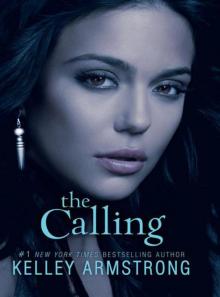 The Calling
The Calling Darkest Powers Bonus Pack
Darkest Powers Bonus Pack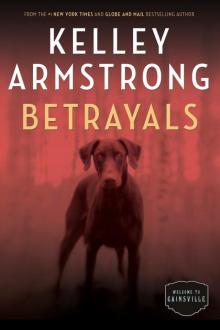 Betrayals
Betrayals Sea of Shadows
Sea of Shadows Rough Justice
Rough Justice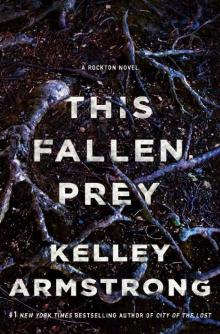 This Fallen Prey
This Fallen Prey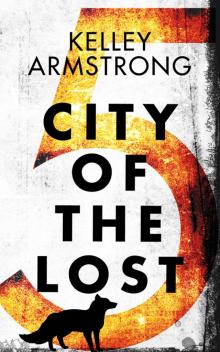 City of the Lost: Part Five
City of the Lost: Part Five Perfect Victim
Perfect Victim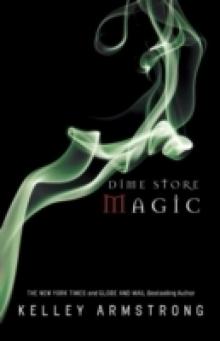 Dime Store Magic
Dime Store Magic Personal Demon
Personal Demon Haunted
Haunted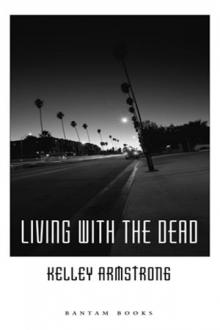 Living With the Dead
Living With the Dead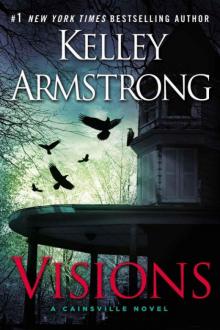 Visions
Visions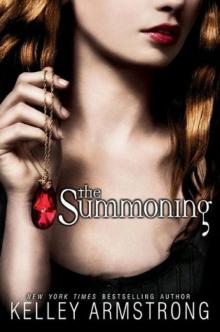 The Summoning
The Summoning Broken
Broken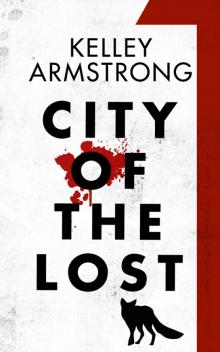 City of the Lost: Part One
City of the Lost: Part One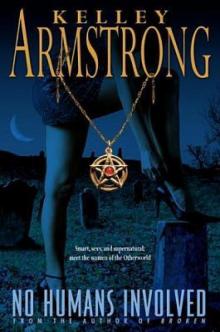 No Humans Involved
No Humans Involved The Awakening
The Awakening The Reckoning
The Reckoning The Gathering
The Gathering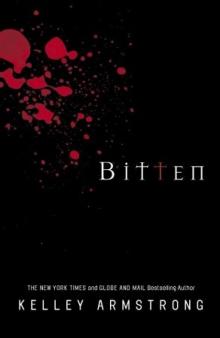 Bitten
Bitten Thirteen
Thirteen Gifted
Gifted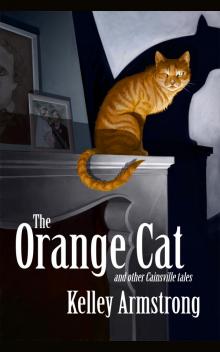 The Orange Cat and Other Cainsville Tales
The Orange Cat and Other Cainsville Tales Darkest Powers Bonus Pack 2
Darkest Powers Bonus Pack 2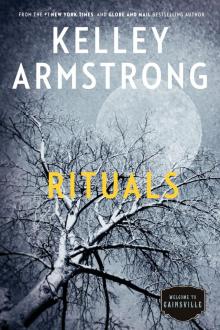 Rituals
Rituals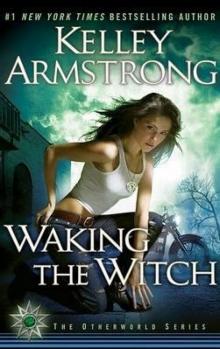 Waking the Witch
Waking the Witch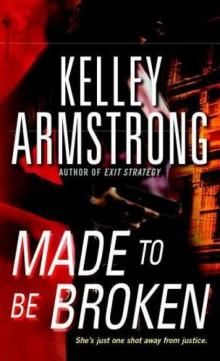 Made to Be Broken
Made to Be Broken Lost Souls
Lost Souls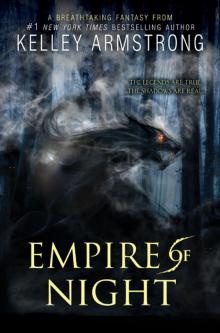 Empire of Night
Empire of Night Wild Justice
Wild Justice Double Play
Double Play Alone in the Wild
Alone in the Wild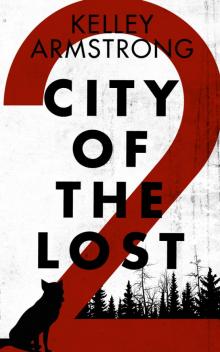 City of the Lost: Part Two
City of the Lost: Part Two A Stranger in Town
A Stranger in Town Watcher in the Woods: A Rockton Novel
Watcher in the Woods: A Rockton Novel Atoning
Atoning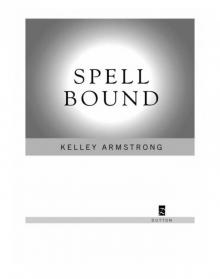 Spellbound
Spellbound Wolf's Bane
Wolf's Bane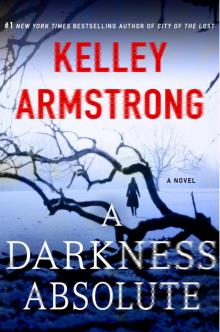 A Darkness Absolute
A Darkness Absolute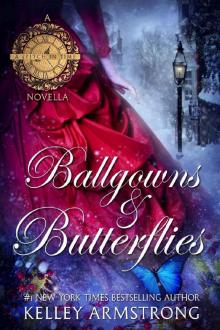 Ballgowns & Butterflies: A Stitch in Time Holiday Novella
Ballgowns & Butterflies: A Stitch in Time Holiday Novella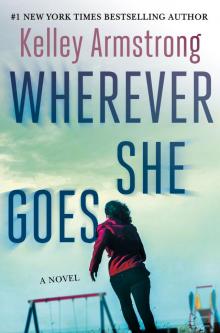 Wherever She Goes
Wherever She Goes A Royal Guide to Monster Slaying
A Royal Guide to Monster Slaying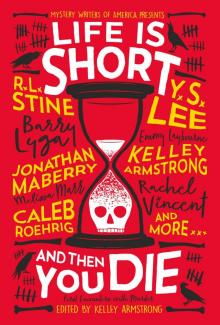 Life Is Short and Then You Die
Life Is Short and Then You Die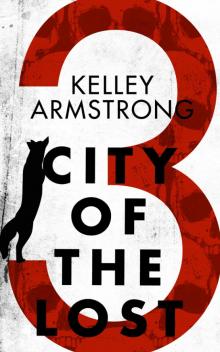 City of the Lost: Part Three
City of the Lost: Part Three Frostbitten
Frostbitten A Stitch in Time
A Stitch in Time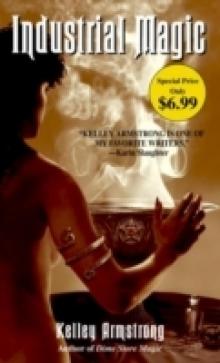 Industrial Magic
Industrial Magic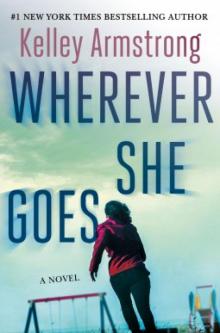 Wherever She Goes (ARC)
Wherever She Goes (ARC)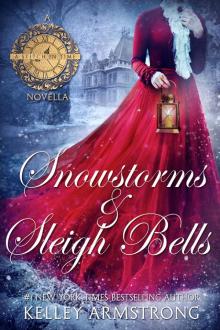 Snowstorms & Sleigh Bells: A Stitch in Time holiday novella
Snowstorms & Sleigh Bells: A Stitch in Time holiday novella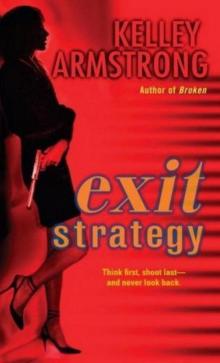 Exit Strategy
Exit Strategy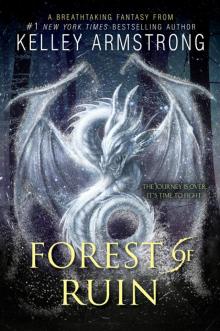 Forest of Ruin
Forest of Ruin Cursed Luck, Book 1
Cursed Luck, Book 1 The Gryphon's Lair
The Gryphon's Lair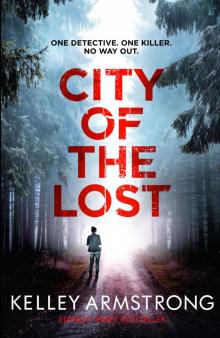 City of the Lost
City of the Lost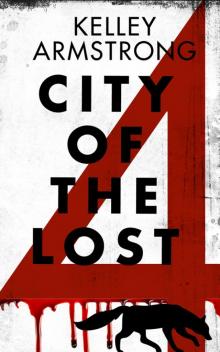 City of the Lost: Part Four
City of the Lost: Part Four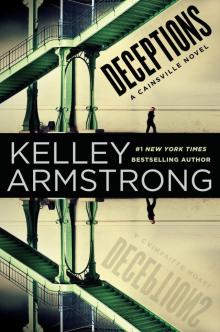 Deceptions
Deceptions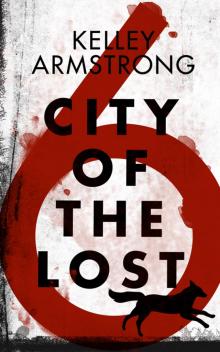 City of the Lost: Part Six
City of the Lost: Part Six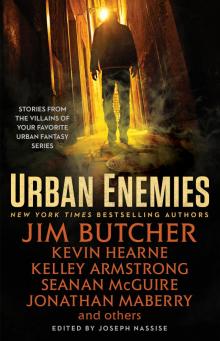 Urban Enemies
Urban Enemies Stolen
Stolen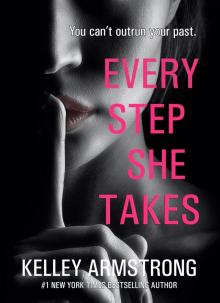 Every Step She Takes
Every Step She Takes Portents
Portents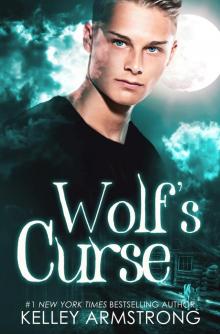 Wolf's Curse
Wolf's Curse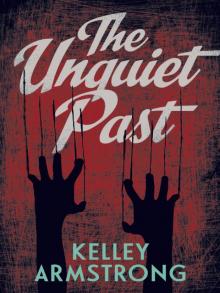 The Unquiet past
The Unquiet past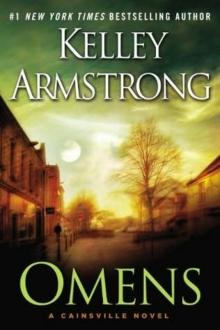 Omens ct-1
Omens ct-1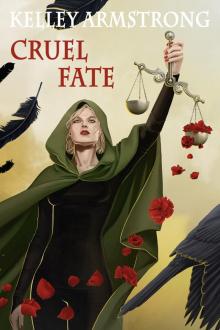 Cruel Fate
Cruel Fate The Calling dr-2
The Calling dr-2 The Awakening dp-2
The Awakening dp-2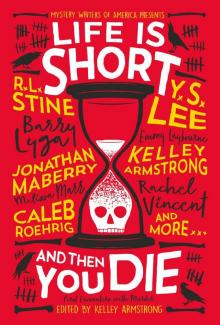 Life Is Short and Then You Die_First Encounters With Murder From Mystery Writers of America
Life Is Short and Then You Die_First Encounters With Murder From Mystery Writers of America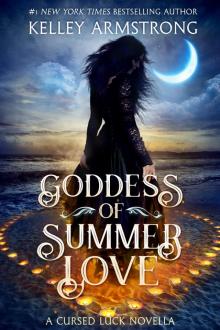 Goddess of Summer Love: a Cursed Luck novella
Goddess of Summer Love: a Cursed Luck novella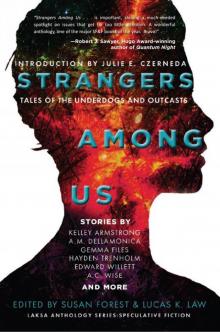 Strangers Among Us
Strangers Among Us The Gathering dr-1
The Gathering dr-1 The Rising dr-3
The Rising dr-3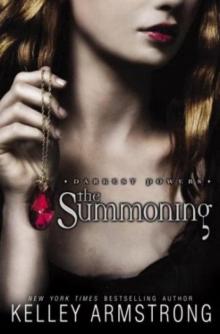 The Summoning dp-1
The Summoning dp-1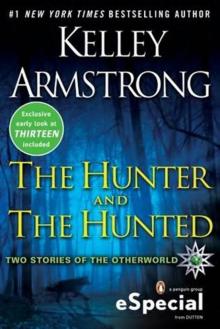 The Hunter And The Hunted
The Hunter And The Hunted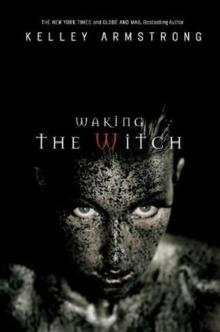 Waking the Witch woto-11
Waking the Witch woto-11